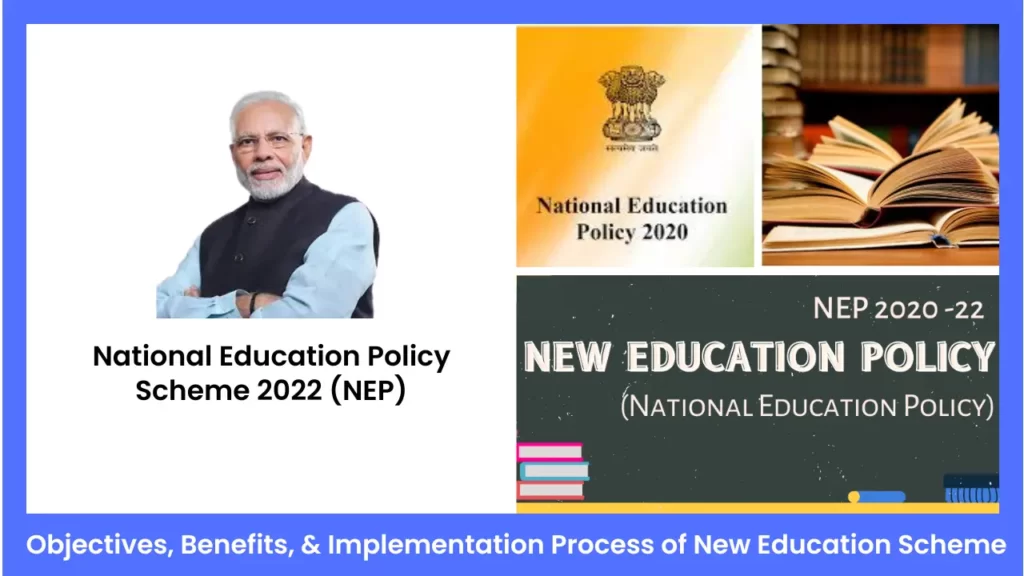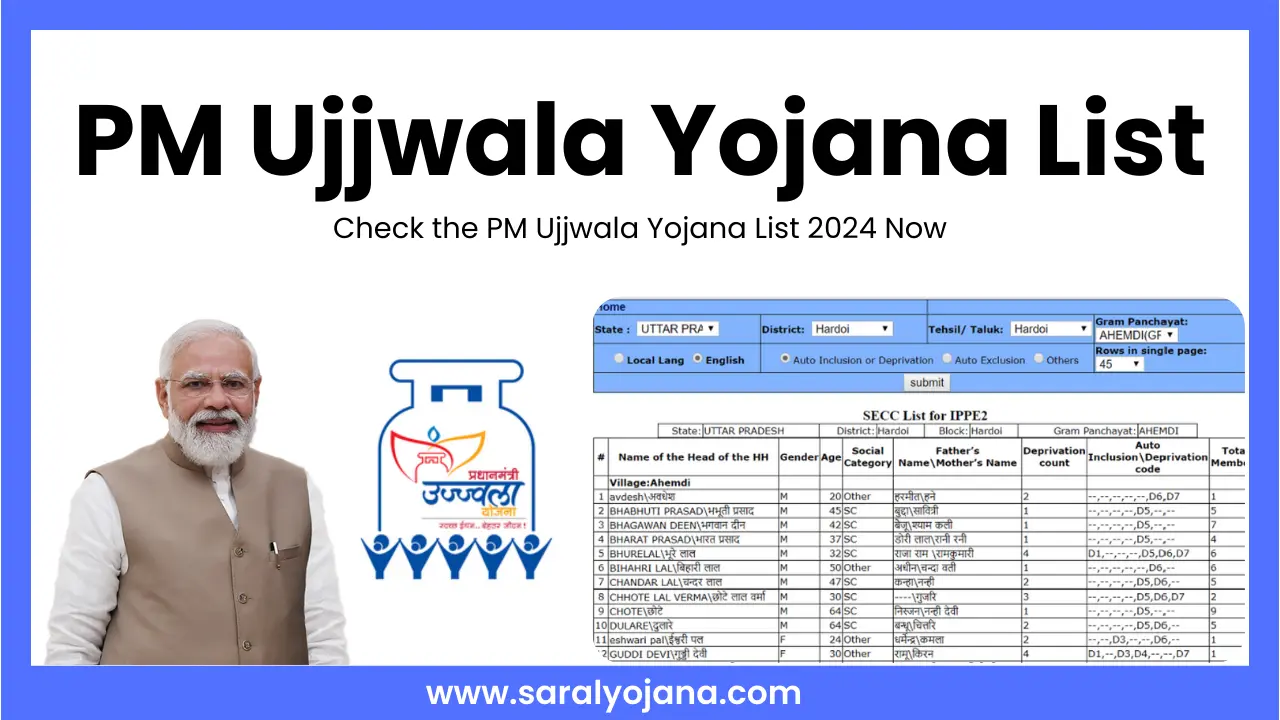National Education Policy Scheme | New Education Policy Details | NEP 2022 PDF | Objectives, Benefits, & Implementation Process of New Education Scheme
The Education Policy has been altered by the Ministry of Human Resource Management under the chairmanship of ISRO chief Dr K Kasturirangan. In today’s article, we will provide you with all the information about the National Education Policy including the purpose of the NEP and its features. So, continue reading to the end.
Join our telegram group for getting the latest update regarding All Government Schemes and Yojana
National Education Policy Scheme
India’s new National Education Policy has made numerous significant changes to the education policy. India must become a world superpower in knowledge through the National Education Policy by 2030. All students in pre-kindergarten through secondary school will receive a general education reception (Medical and law studies not included). According to the policy, the 10+2 education model will be replaced by the 5+3+3+4 pattern.

Overview of the NEP 2022
| Name of the Scheme | National Education Policy |
| Launched By | Indian government |
| Beneficiary | Citizens of India |
| Purpose of the Scheme | The main objective of this policy is to universalize education and make India a global knowledge superpower. |
| Official Website | https://www.education.gov.in/ |
The objective of the National Education Policy Scheme
The primary goal of the National Education Policy is to elevate Indian education to a global level. So that India can become a global knowledge superpower. The NEP will ensure that education is available to all. The Government make many amendments to the old education policy in the NEP 2022. As a result, educational quality will improve, and children will be able to receive a good education.
Principle of NEP 2022
- identifying and developing each child’s potential
- To improve children’s literacy and numeracy skills through flexible learning
- investing in a public education system to develop quality education
- Introducing children to Indian culture through cutting-edge research
- Teaching good governance and empowering children by making education policy transparent
- The use of technology as much as possible is emphasised, as is the teaching of different languages.
- Making children’s thinking more creative and logical
Implementation of National Education Policy
The government will soon announce the National Education Policy implementation plan. After 1968 and 1986, this is the third education policy. Many important changes will occur in the new education system such as the removal of traditional lines between different streams of education, the provision of more educational materials to the new generation of students, and so on.
It provides students with a better education. This education policy will be in effect for the next two decades. This national education policy will be implemented gradually over time. This Shiksha Parv included a discussion of the National Education Policy’s implementation. The Ministry received suggestions from 15 lakh stakeholders through this Shiksha Parv.
The Statement of the NEP Scheme 2022
The Ministry of Education has prepared a draught implementation plan in accordance with the National Education Policy. Currently, the Ministry is finalising the procedure for implementing this scheme and will soon make it public. The Ministry started laying the groundwork for the National Curriculum Framework. It will be developed in the academic year 2022-2023.
- The National Education Policy has made professional development for teachers mandatory. A 50-hour module has been launched on the Diksha platform to support this. This module will consist of 18 modules lasting 4 to 5 hours each. This module helps to organise the in-service training for teachers. This module covers the entire scope of primary education.
- The Ministry of Education has designated the Foundation Literacy and Numeracy Mission as a national mission.
- The government will greatly expand e-learning through the Diksha platform. In order for students to have access to e-content.
- The National Education Policy will also prioritise student mental health. The government has launched an initiative called Manudarpan to address this. Counselling and emotional support will be provided to students as part of this initiative. This Manudarpan Initiative will create a National Toll-Free Number, Online Chat, National Level Directory, and Councillor Database.
- The NCRT has signed an agreement with the Indian Sign Language Research and Training Centre. This agreement will result in the creation of an Indian Sign Language dictionary for school use.
- The CBSE examination is being phased-reformed under the National Education Policy. All of these reforms will go into effect in 2022. Teachers will teach Mathematics, Hindi, English, and Sanskrit in two levels beginning in the academic year 2022-23. Also, the contribution-based questions in class X and XII board exams will increase. These contribution-based questions have been introduced in board exams and are increasing by 10% each year.
Phases of the National Education Policy
The NEP is divided into four phases, as shown by the 5+3+3+4 pattern. This new pattern includes 12 years of formal education and three years of pre-schooling. Both government and private institutions must adhere to the New National Education Policy.
| Foundation Stage | Children aged 3 to 8 are eligible for the Foundation Stages. This includes three years of preschool and two years of school (grades one and two). The Foundation Stage will concentrate on language development and learning. |
| Preparatory Stage | Children aged 8 to 11 will be in the preparatory stage. Children in grades 3–5 are included. Teachers’ goal at this stage will be to help children improve their language and numeracy skills. Children will be instructed in the regional language at this stage. |
| Middle Stage | Children in grades 6 through 8 will be in the middle stage. Coding will be taught to children in grades 6 and up, and they will be given trade tests and internships. |
| Secondary Stage | In the secondary stage, children from classes 9 to 12 will participate. Previously, children studied Science, Commerce, and Arts. However, it has since been repealed. Children can now study whatever they want. Children, for example, can study commerce alongside science or arts alongside commerce. |
Features of the NEP Scheme
- The Ministry of Human Resources will rename the Ministry of Education.
- The National Education Policy will make education universal, with the exception of medical and legal studies.
- The previous pattern was 10+2. However, the new National Education Policy will follow the 5+3+3+4 pattern. There will be 12 years of schooling and three years of preschool.
- Vocational testing internships will begin in grade six.
- Up to the fifth grade, education will be provided in either the mother tongue or the regional language.
- Previously, there were science, business, and art streams. There will no longer be any such stream. Students can select their preferred subject. Along with physics, students can study accounting or any of the arts.
- Beginning in class VI, students will learn to code.
- Every school will have a computer.
- You can learn electronic content in the regional language.
- Virtual laboratories will be created.
Benefits of the National Education Policy 2022
- The implementation of the National Education Policy will cost 6% of the GDP.
- There will be the opportunity to study Sanskrit and other ancient Indian languages. If students wish, they may study these languages.
- Board exams will also undergo changes. Board exams may be held twice a year to ease the burden on students.
- We’ll use artificial intelligence software to make studying simpler.
- Higher education will gradually stop offering the MPhil degree.
- Extracurricular activities will remain part of the main curriculum.
- Students will be taught three languages at their own level, which will be determined by the states.
- The National Council of Educational Research and Training will create the National Curriculum Framework for K-12 education.
- Many institutions establishes to carry out this new education policy smoothly.
- The new National Education Policy will prioritise children’s education as well as their skills.
- If a student leaves a course in the middle and wants to enrol in another, he can take a break from the first course for a set period of time and then enrol in the second.
How to Register on the MyNEP2020 Platform?
- Visit the official website of the MyNEP2020 Platform.
- Click on the “Go to Website.”
- Now, click on “Registration.”
- A new page will open where you have to enter your name, gender, DOB, mobile number, and E-mail ID.
- Next, click on “Register” to register on the MyNEP2020 platform.
NEP 2022 Contact Information
We have provided you with comprehensive information about the National Education Policy in this article. If you are still having problems, you can contact us using the information provided below to get help. The following is some contact information.
| E-mail ID | dkchaturvedi@ncte-india.org |
| Mobile Number | 011- 20893267 OR, 011-20892155 |
Frequently Asked Questions
The new NEP is built on four pillars: accessibility, equity, quality, and accountability. The old 10+2 structure will be replaced by a 5+3+3+4 structure that includes 12 years of school and 3 years of Anganwadi/pre-school.
NEP encourages students to shift from traditional content-heavy and rote learning practices toward holistic learning. Apart from Science and Mathematics, it instils a creative and multidisciplinary curriculum. The NEP focuses equally on other subjects such as humanities, sports, fitness, languages, culture, arts, and so on.
5+3+3+4 indicates the four phases of the new Education Policy. We have described all the stages in the above topic. So, go and read.
The policy extends from elementary to higher education in both rural and urban India.
This will allow students to experience global quality education in their own country. The policy of introducing multi-disciplinary institutes will result in a renewed emphasis on every field such as arts and humanities, and this type of education will help students learn and grow holistically.
Important Links
| Join Telegram Group | CLICK HERE |
| Visit Official Website | CLICK HERE |
| Read the NEP PDF | CLICK HERE |
Related Article:
- PM Kisan Maandhan Yojana 2022: Overview, Benefits, & How To Register For PM Kisan Pension Every Month
- IOCL Apprentice Marketing Division Recruitment – Vacancy for 1760 Posts
- PMEGP Scheme 2022 – Pradhan Mantri Scheme for Employment Generation
- PGCIL Diploma Trainee Recruitment: Online Application For 211 Posts
- Village Defence Guards Scheme Started In Jammu & Kashmir, Know All the Benefits And Details
Join our telegram group for getting the latest update regarding All Government Schemes and Yojana
![PM Sahaj Bijli Har Ghar Yojana: Saubhagya 2024 [Apply Now]](https://saralyojana.com/wp-content/uploads/2024/04/PM-Sahaj-Bijli-Har-Ghar-Yojana.webp)



![Nijashree Housing Scheme 2024 For LIG/MIG [Apply Now]](https://saralyojana.com/wp-content/uploads/2024/02/Nijashree-Housing-Scheme.webp)

![Hawker Support Scheme 2024: Eligibility and Benefits [Apply Now]](https://saralyojana.com/wp-content/uploads/2024/02/Hawker-Support-Scheme.webp)
![Nijo Griha Nijo Bhumi Scheme 2024 For Homeless People [Apply Now]](https://saralyojana.com/wp-content/uploads/2024/02/Nijo-Griha-Nijo-Bhumi.webp)
![West Bengal Gatidhara Scheme 2024 [Apply Now]](https://saralyojana.com/wp-content/uploads/2024/02/Gatidhara-Scheme-West-Bengal.webp)
![West Bengal Matsyajeebi Bandhu Scheme 2024 [Apply Now]](https://saralyojana.com/wp-content/uploads/2024/02/Matsyajeebi-Bandhu-Scheme-in-West-Bengal.webp)
![Matsyajeebi Credit Card Scheme In West Bengal [Apply Now]](https://saralyojana.com/wp-content/uploads/2024/02/Matsyajeebi-Credit-Card-Scheme-in-West-Bengal.webp)



![West Bengal Sabla Scheme To Empower Adolescent Girls [Apply Now]](https://saralyojana.com/wp-content/uploads/2024/01/West-Bengal-Sabla-Scheme.webp)